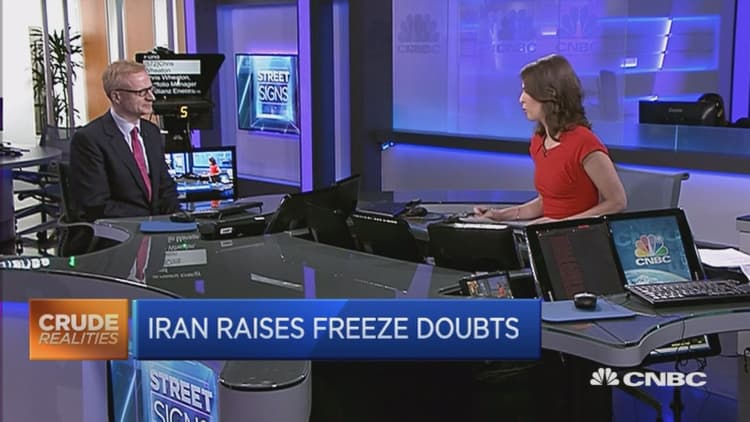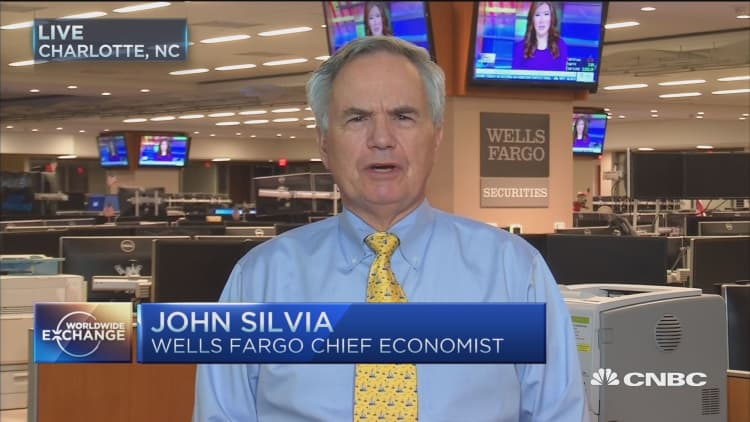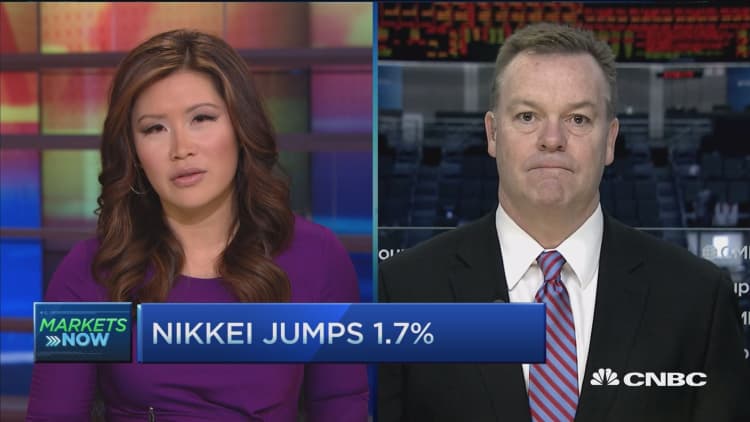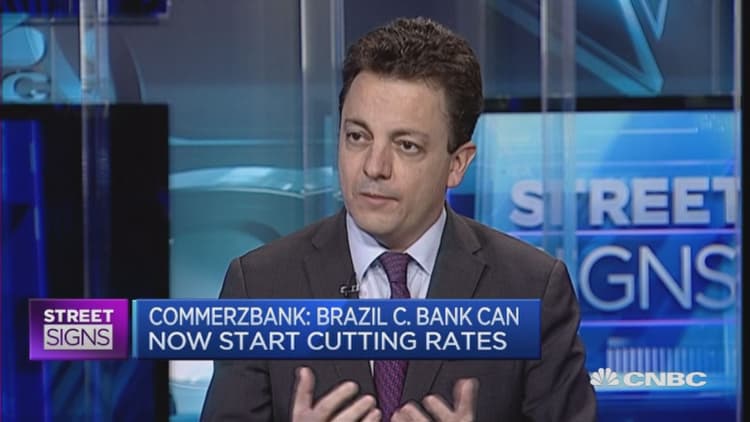



European equities finished higher on Monday shrugging off a sharp dip in oil prices, as investors looked ahead to a raft of central bank meetings and rate decisions this week.
The pan-European Stoxx 600 index closed 0.7 percent higher provisionally with almost all sectors ending in positive territory. Oil and gas, however, wavered throughout trade, closing down 0.1 percent.
All major European bourses closed higher, with the majority of peripheral indexes following suit.
European markets
Oil prices fell deep into the red on Monday after Iran dashed hopes of a production cut, just days ahead of a potential meeting between OPEC and non-OPEC members. OPEC also issued its latest report on Monday, saying it expected lower demand for its oil in 2016, than previously forecast.
U.S. crude was off some 4.5 percent by Europe's close, slipping to $36.78 a barrel, while international benchmark Brent was hovering around $39.13, a drop of some 3 percent. This weighed on U.S. markets too, which were struggling for gains at Europe's close on Monday. Most oil stocks, however, closed only slightly lower or higher, except Tullow Oil, which jumped almost 5 percent.
Basic Resources was Europe's best performing sector on Monday, closing up 1.7 percent, despite a slip in both oil and metal prices. Anglo American ended 6 percent higher, while Glencore and ArcelorMittal both posted strong gains, closing above 4 and 2.5 percent respectively.
Central bank week
European markets generally followed a positive trend set in Asia overnight where markets traded higher across the board on Monday. Global traders have began to take a more positive view of the European Central Bank's (ECB) monetary policy decision last week.
They have also been buoyed by comments from a Chinese regulator on Saturday which stated that it wouldn't relaunch a market circuit breaker for the next few years.
Investors will be looking ahead to more central bank decisions this week with the Bank of Japan's monetary policy meeting on Monday (its rate decision is due on Tuesday), the U.S.' Federal Open Market Committee holding a two-day meeting starting on Tuesday (with an interest rates decision due Wednesday) and the Bank of England meeting on Thursday. Norway and Switzerland also hold monetary policy meetings this week.
Europe's STOXX 600 Banks sector was treading water on Monday, ahead of the slew of announcements this week, with the sector closing 0.1 percent up.
BMPS rises
The best performer on the Stoxx 600 index was Italian bank Banca Monte dei Paschi di Siena, finishing 10.2 percent higher, after Italian newspaper La Repubblica reported that Prime Minister Matteo Renzi had asked Italian state lender Cassa Depositi e Prestiti and Intesa Sanpaolo to consider a potential acquisition of the bank.
La Repubblica added that both options faced hurdles, according to a Reuters report on the story. Shares of the bank were briefly suspended in morning trade.
One of the worst performers on the index was French defense and security company Safran, finishing trade over 6 percent down, after it confirmed on Monday that it was selling its Morpho Detection business, and said it was reviewing strategic options for its identity and security activities, Reuters reported.
Shares of Stagecoach slipped some 5.4 percent after HSBC cut the stock to reduce from a hold recommendation.
DAX higher despite Merkel defeat
The German DAX was on a tear on Monday, closing up 1.6 percent, despite German Chancellor Angela Merkel's CDU party suffering big defeats in regional elections this weekend. The party's losses come amid the dramatic rise in support for the anti-immigrant AfD party and criticism of Merkel's refugee policy.
Also giving markets a boost were data released on Monday that showed industrial output in the euro zone rose dramatically in January, by 2.1 percent month-on-month , above forecasts of 1.7 percent in a Reuters poll.
-Saheli Roy Chaudhury contributed to this market report.




